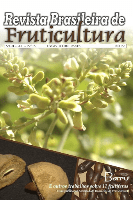
Revista Brasileira de Fruticultura
Scope & Guideline
Exploring Brazil's Rich Agricultural Heritage
Introduction
Aims and Scopes
- Crop Production and Management:
Research in this area focuses on optimizing crop yield and quality through various agronomic practices, including fertilization, irrigation, and pest management. This involves the evaluation of different cultivars, rootstocks, and production systems. - Genetic Diversity and Breeding:
The journal emphasizes the importance of genetic studies to enhance the diversity of fruit species. This includes the identification of resistant varieties and the development of new cultivars through breeding programs. - Physiology and Plant Nutrition:
Studies related to plant physiology examine the growth responses of fruit trees to environmental factors, nutrient availability, and stress conditions. This research is vital for improving fruit quality and yield. - Postharvest Technology and Quality Assessment:
Research on postharvest handling practices, storage conditions, and quality evaluation methods is crucial for extending shelf life and maintaining the quality of fruit products. - Sustainable Practices and Environmental Impact:
The journal promotes research on sustainable agricultural practices, including organic farming, integrated pest management, and the use of biofertilizers, to minimize environmental impact while maximizing productivity.
Trending and Emerging
- Precision Agriculture and Technology Integration:
There is a significant rise in research involving precision agriculture techniques, including the use of machine learning and remote sensing technologies to monitor crop conditions and optimize management practices. - Biotechnology in Fruit Breeding:
Emerging studies on the application of biotechnology for improving fruit varieties are gaining traction. This includes genetic modification, marker-assisted selection, and tissue culture techniques aimed at enhancing disease resistance and fruit quality. - Climate Resilience and Adaptation Strategies:
Research focusing on the impact of climate change on fruit production and the development of resilient agricultural practices is increasingly prevalent. This includes studies on drought tolerance, heat stress responses, and adaptive management strategies. - Consumer Preferences and Market Trends:
There is a growing emphasis on understanding consumer preferences, particularly regarding new fruit varieties and organic products. Research in this area seeks to align production with market demand to enhance economic viability. - Nutritional and Health Benefits of Fruits:
Studies exploring the nutritional content and health benefits of various fruits are on the rise, emphasizing the importance of fruits in diets and their potential health impacts.
Declining or Waning
- Traditional Pest Management Techniques:
There has been a noticeable reduction in research focusing solely on conventional pest management methods. This decline could be attributed to the increasing interest in integrated pest management and organic approaches that are more sustainable. - Basic Soil Fertility Studies:
While soil fertility remains a critical aspect of fruit cultivation, research specifically centered on basic soil fertility without innovative applications or technologies has decreased. This shift suggests a move towards more complex, integrative studies. - Generalized Crop Yield Assessments:
Studies that provide generic assessments of crop yields without delving into specific factors such as varietal differences or localized conditions are becoming less common, reflecting a trend towards more nuanced and detailed research.
Similar Journals
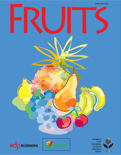
Fruits
Exploring the Science of Fruits for a Sustainable Future.Fruits, published by the International Society for Horticultural Science (ISHS), is a pivotal journal in the fields of Agronomy, Food Science, and Horticulture. Since its inception in 1995 and with a continued publication from 2001 to 2024, this journal provides a platform for innovative research and advancements related to fruit science, covering an array of topics from cultivation techniques to post-harvest processing. With an ISSN number of 0248-1294 and an E-ISSN of 1625-967X, *Fruits* engages a global audience, operating out of France and serving as a vital resource for academics, industry professionals, and students alike. Despite its current categorization as Q4 in Agronomy and Crop Science and Q3 in both Food Science and Horticulture, the journal is committed to fostering high-quality research and enhancing its visibility within the academia, as reflected in its Scopus rankings. Readers can expect rigorous peer-reviewed articles that contribute significantly to the understanding of fruit-related science, ultimately driving the advancement of sustainable practices in the field. Emphasizing accessibility, while currently not open access, *Fruits* remains dedicated to disseminating valuable knowledge to enhance the communal pursuit of excellence in horticultural research.

POTATO RESEARCH
Pioneering breakthroughs in potato science.POTATO RESEARCH is a prestigious journal dedicated to advancing the scientific understanding of potato cultivation and its wider implications in the fields of agronomy, crop science, and food science. Published by Springer in the Netherlands, this journal boasts an impressive impact factor and ranks in the Q2 category for both Agronomy and Crop Science, as well as Food Science in 2023, affirming its significant contribution to these disciplines. With over five decades of research converged from 1970 to 2024, POTATO RESEARCH serves as a vital platform for researchers, professionals, and students interested in the latest findings and innovations that affect potato production and processing. Although it is not an open-access journal, it remains a crucial resource for those dedicated to enhancing agricultural sustainability and food security. For inquiries or submission details, please refer to their office located at Van Godewijckstraat 30, 3311 GZ Dordrecht, Netherlands.

EUROPEAN JOURNAL OF HORTICULTURAL SCIENCE
Illuminating the path of horticultural research and innovation.The European Journal of Horticultural Science, an esteemed publication of the International Society for Horticultural Science (ISHS), serves as a pivotal platform for advancing the field of horticulture since its inception in 2003. With its base in Germany, this journal occupies a significant position in the Q3 quartile of horticultural research, confidently ranked #60 out of 115 in the Agricultural and Biological Sciences category on Scopus, reflecting its relevance and impact within the scholarly community. The European Journal of Horticultural Science fosters open access to a wealth of research and insights, facilitating knowledge sharing among researchers, professionals, and students dedicated to the innovative and sustainable practices in horticultural science. As it embarks on a new chapter through its convergence years leading up to 2024, the journal aims to enhance the dialogue on contemporary horticultural challenges and advancements, making it an essential resource for those seeking to contribute to and learn from ongoing developments in this vital field.
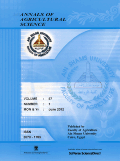
ANNALS OF AGRICULTURAL SCIENCES
Empowering the Agricultural Community Through Open Access ResearchANNALS OF AGRICULTURAL SCIENCES, published by Elsevier, stands as a leading open access journal dedicated to the multifaceted field of agricultural sciences. Since its inception in 2011, this journal has served as a pivotal platform for the dissemination of high-quality research, covering areas such as agronomy, animal science, horticulture, food science, plant science, and soil science. With an impressive Q1 ranking across multiple disciplines and notable positions in Scopus Ranks—including #6 in Animal Science and Zoology and #3 in Horticulture—this journal is recognized globally for its significant contribution to advancing agricultural innovations. The journal caters to a diverse audience of researchers, professionals, and students, providing them with open access to cutting-edge studies that address critical issues in agricultural productivity and sustainability. Its commitment to high-impact research ensures that articles contribute meaningfully to the scientific community, fostering advancements in agricultural practices and policies.
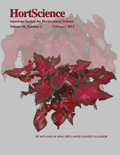
HORTSCIENCE
Pioneering discoveries in the world of horticulture.HORTSCIENCE is a prestigious journal published by the American Society for Horticultural Science, focusing on the latest research and developments in the field of horticulture. With an ISSN of 0018-5345 and an E-ISSN of 2327-9834, this journal has established itself as a vital resource for horticultural scientists, practitioners, and educators since its inception. As of 2020, it has embraced an Open Access model, promoting the dissemination of scientific knowledge and enabling wider accessibility to its rich content. HORTSCIENCE currently holds a Q2 ranking in the Horticulture category for 2023, placing it in the top tier of its field with a Scopus rank of 36 out of 115 in the area of Agricultural and Biological Sciences. This journal publishes empirical research, significant advancements, and comprehensive reviews that contribute to the understanding and improvement of horticultural practices, making it an essential publication for anyone involved in horticultural research or education.

Scientific Papers-Series B-Horticulture
Connecting Research and Practice in Horticultural Sciences.Scientific Papers-Series B-Horticulture is a distinguished open-access journal published by the University of Agronomic Sciences and Veterinary Medicine Bucharest. With its ISSN 2285-5653 and E-ISSN 2286-1580, this journal has been accessible to the global research community since 2002, ensuring that vital horticultural research reaches a wide audience without barriers. Positioned at the forefront of the horticultural sciences, the journal serves as a platform for original research, reviews, and innovations pertaining to horticultural practices, plant physiology, and sustainable agriculture. Its contributions are not just significant in Romania but also resonate through the international scientific community, helping to address pressing agricultural challenges. The office located at 59 Marasti Boulevard, District 1, Bucharest 011464, Romania, symbolizes its commitment to advancing horticultural knowledge and fostering collaboration among researchers, professionals, and students alike. With no current H-index data, the journal invites continued contributions to enhance its visibility and impact in the field.

Ornamental Horticulture-Revista Brasileira de Horticultura Ornamental
Exploring the Beauty of Horticultural ScienceOrnamental Horticulture - Revista Brasileira de Horticultura Ornamental, published by the SOC BRASILEIRA FLORICULTURA & PLANTAS ORNAMENTAIS, serves as a premier platform for disseminating high-quality research in the field of ornamental horticulture. With an Open Access model in place since 1995, this journal ensures that valuable findings in horticultural science reach a wide audience, fostering greater collaboration within the global community. Based in Brazil, this journal primarily focuses on the cultivation, management, and improvement of ornamental plants, contributing significantly to both the scientific and practical aspects of the horticulture industry. It has achieved esteemed rankings, including being classified in the Q2 quartile for Horticulture and Q3 for Plant Science in 2023, demonstrating its academic rigor and relevance. Scopus ranks it at 54th in Horticulture and 278th in Plant Science, positioning it among leading scholarly resources in these fields. The journal is committed to advancing knowledge through innovative research that aids in the sustainable development of ornamental horticulture practices.

Pesquisa Agropecuaria Tropical
Exploring the forefront of agronomic research.pesquisa Agropecuaria Tropical is a premier Open Access journal dedicated to advancing the knowledge and practices within the field of agronomy and crop science. Since its inception in 1971, this peer-reviewed journal, published by the Universidade Federal de Goiás, has played a pivotal role in disseminating high-quality research from Brazil and beyond. Operating under an Open Access model, it ensures that scholarly articles are freely accessible, thereby fostering greater collaboration and innovation. With a Scopus ranking placing it in the 32nd percentile among its peers in agricultural and biological sciences, and a current classification in the Q3 category of agronomy and crop science, the journal serves as an essential resource for researchers, professionals, and students alike. As it continues its publication journey from 2010 to 2024, it remains committed to contributing valuable insights and advancements in the agricultural sector, ultimately influencing sustainable practices and food security.

Legume Research
Connecting Science and Sustainability through LegumesLegume Research, published by the AGRICULTURAL RESEARCH COMMUNICATION CENTRE in India, is an essential peer-reviewed journal focusing on advancements in the field of agronomy, crop science, soil science, and plant science. With an ISSN of 0250-5371 and operating since 2008, this journal caters to researchers, agricultural professionals, and students interested in the critical role of legumes in sustainable agriculture and food security. It ranks within the third quartile (Q3) in several prominent categories, reflecting its contribution to the agricultural and biological sciences community—ranking #279 in Agronomy and Crop Science, #113 in Soil Science, and #376 in Plant Science based on Scopus metrics. Although not open access, Legume Research remains a vital resource for those seeking to enhance their knowledge and contribute novel research findings in the ever-evolving discipline of legume cultivation and utilization. With a clear objective to disseminate impactful research, this journal significantly contributes to the global understanding of legumes' ecological, economic, and nutritional importance.
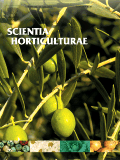
SCIENTIA HORTICULTURAE
Unveiling the science behind sustainable plant production.SCIENTIA HORTICULTURAE, published by Elsevier, is a leading journal in the field of horticulture, with an impressive impact factor reflected in its Q1 ranking (2023) and position as #6 out of 115 in the Scopus category for Agricultural and Biological Sciences. This journal plays a pivotal role in disseminating cutting-edge research and innovations in horticultural science and technology, contributing significantly to the understanding of plant cultivation, production, and management. With continuous publication since 1973, SCIENTIA HORTICULTURAE offers an essential platform for researchers, professionals, and students alike who are focused on the advancement of sustainable horticultural practices. Although it is not an open-access journal, it provides a wealth of data and findings that can be accessed through institutions and libraries. Located in the Netherlands at RADARWEG 29, 1043 NX AMSTERDAM, this journal remains an invaluable asset to the global horticultural community throughout its converged years, fostering collaboration and elevating standards in horticulture research.